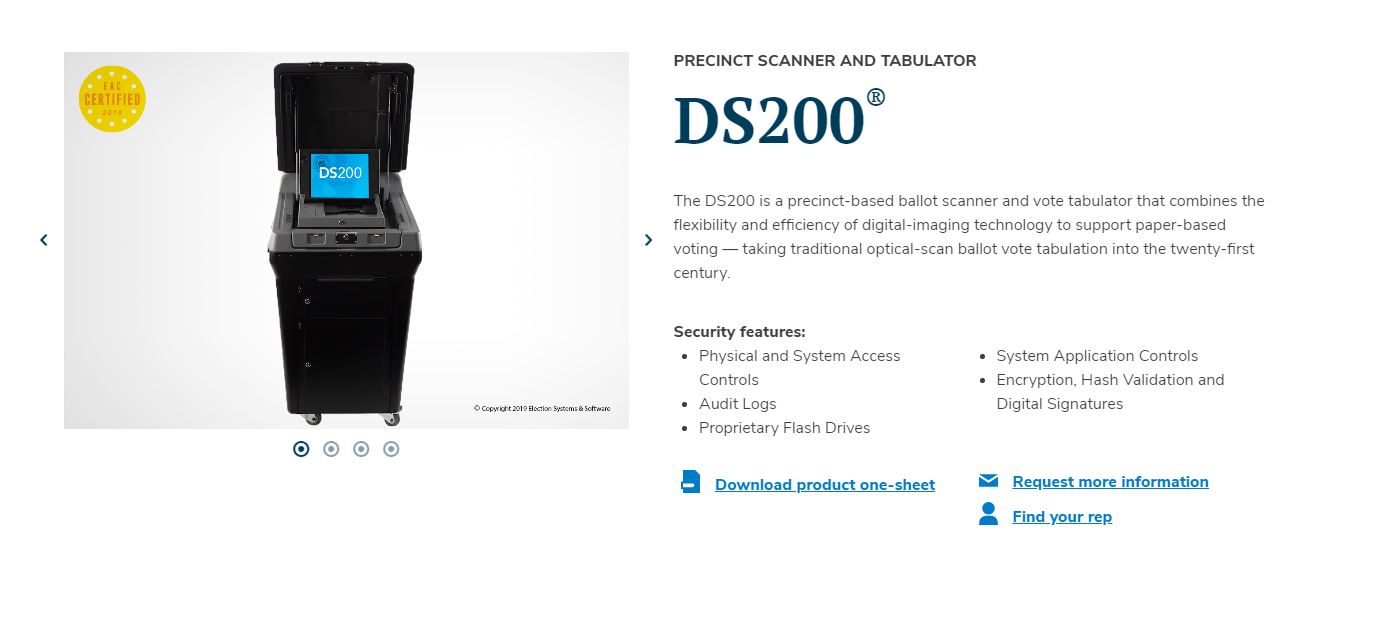By Sherri Robinson
Contributing Writer
Last week’s municipal election not only resulted in giving Wrightsville Beach a new mayor and two new aldermen, it also served as a pilot test for a new voting machine option for New Hanover County. The New Hanover County Board of Elections tested the DS 200, a precinct-based ballot scanner and vote tabulator that combines the flexibility and efficiency of digital-imaging technology to support paper-based voting, taking traditional optical-scan ballot vote tabulation into the 21st century. And, Wrightsville Beach was the sole precinct chosen for this test.
The DS 200 ballot scanner and vote tabulator machine was chosen by the New Hanover County Board of Elections to meet mandated state law requirements to replace voting machines before the 2020 races. This machine assures the use of paper ballots with the added ability of the device to read each ballot with or without write-in votes whether inserted face-up or face-down. In August, the five-member North Carolina Board of Elections made ballot security the responsibility of local boards of elections. Many of those county election officials are in the process right now of making decisions on which machines to choose.
Election security experts agree that the old-fashioned paper ballot is currently the most secure way to vote. Hacking remains a constant threat hovering over electronic voting, something we were reminded of this summer when an 11-year-old boy at a hacking convention was able to hack into a replica of the Florida state elections website in just 10 minutes.
In 2013, the North Carolina General Assembly mandated that all voting use paper ballots. Switching to all paper ballot voting with updated machinery was to have been accomplished by January 2018, but all counties now have until Dec. 1 to comply.
This summer the board approved, on a 3-2 vote, three new vendors that counties could consider when buying new voting machines. All were purported to offer paper ballot machines, but just two of the machines are what people think of when we think of paper ballots. The third is a hybrid machine that uses a touch-screen; it produces a paper result of the voter’s choices reproduced in bar code, i.e., not readable by a live person but read by another machine.
Numerous voting-rights activists expressed their concerns about the bar code machines at a state elections board public hearing and in the media. Among their worries is that the bar code machines would not produce reliable or useful postelection audits. One of the people worried is Josh Lawson, who was the general counsel for the state elections board until June. “I think that the bar code ballot process does not support or instill voter confidence to the same degree as hand-marked paper ballots,” he said.
Elections Director Rae Hunter-Havens confirmed that we have paper ballot machines, the DS 200 tabulators. Voters mark with a pen and paper. Electronic voting is available for people with disabilities who may need them and to comply with the Americans with Disabilities Act.
More than 20 North Carolina counties need to replace all their voting machines, including the large counties of Guilford (Greensboro) and Mecklenburg (Charlotte).




